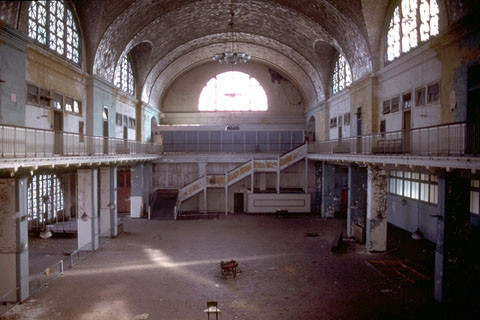'Bright Eyes'

Playing with translation is learning about one’s own language, one’s own history, how it came to be that certain words emerge from the mouth. I was working this morning on a wee project from last August, started after a research group meeting (working together on the question What is production?) where we considered Hannah Arendt and, inevitably, Heidegger. It brought me back to two things, that meeting last August, to Celan’s poem “Todtnauberg” about his trip to see Heidegger at his house in the mountains in Germany, and to my own childhood and what we called country houses then, “cabins.”
What happens when the word “Hut” with its abruptness becomes the word “Cabin” which has longer legs, and a downbeat, as if these legs were in the act not of walking but of lying down?
And what if I play with the word “in”, by forbidding it, and changing every instance of “in” to a related word. Does it alter the folds of the poem?
What if I introduce words from my childhood like “bushwhack”, for walking in dense bush and clearing a path as you go by, or “swearing”, for “crudeness”? Who is walking now in this poem? The northern muskeg of my country, fit for moose, hard to walk in.
The poem starts with cures. Before every cure, there is a wound, a disenfranchisement of the body. As Celan's was, facing Heidegger. Eyebright I have to look up: a herb used in northern Europe against eye infections, bad memory, and vertigo. Semi-parasitic on the roots of other plants. A variety was brought to Manitoba in the 1950s by the German Army on manoeuvres. A noxious weed, animals won’t eat it, and it overtakes annuals and forage crops. Another variety seen in moist, open areas in Alberta: Euphrasia arctica Lange ex Rostrup. A herb that both cures and wounds, then.
And arnica, of course, against bruising. It too grows in the Alberta mountains and in the north. And to run into the hills. A path bruises its hill too. To walk on fragile spongy ground, repeatedly, scars the hill for decades. (I should say too that I use dictionaries, GoogleTranslate, and wonder to translate from German. Every translation is a geneology that the links here can only hint at.)
CABIN (Paul Celan, trans. by a kid from Alberta, for Robert Kroetsch)
Arnica, eye bright, a
thirst slaked from the well
die-cut with the star,
inside the
cabin,
inside the book
–whose name did it receive
there before mine?–
into this book
name written within
a hope, here,
of a thoughtful
Word
coming
at the heart,
bush turf, jagged paths,
orchis by orchis,
swearing, later, while driving
away,
one of us, man, hears
the sound of it,
the half-
trampled trail bush-
whacked into the spongy hill,
clammy,
soaked.
T r a n s l a t i o n ' s__H o m e o p a t h i c__G e s t u r e s